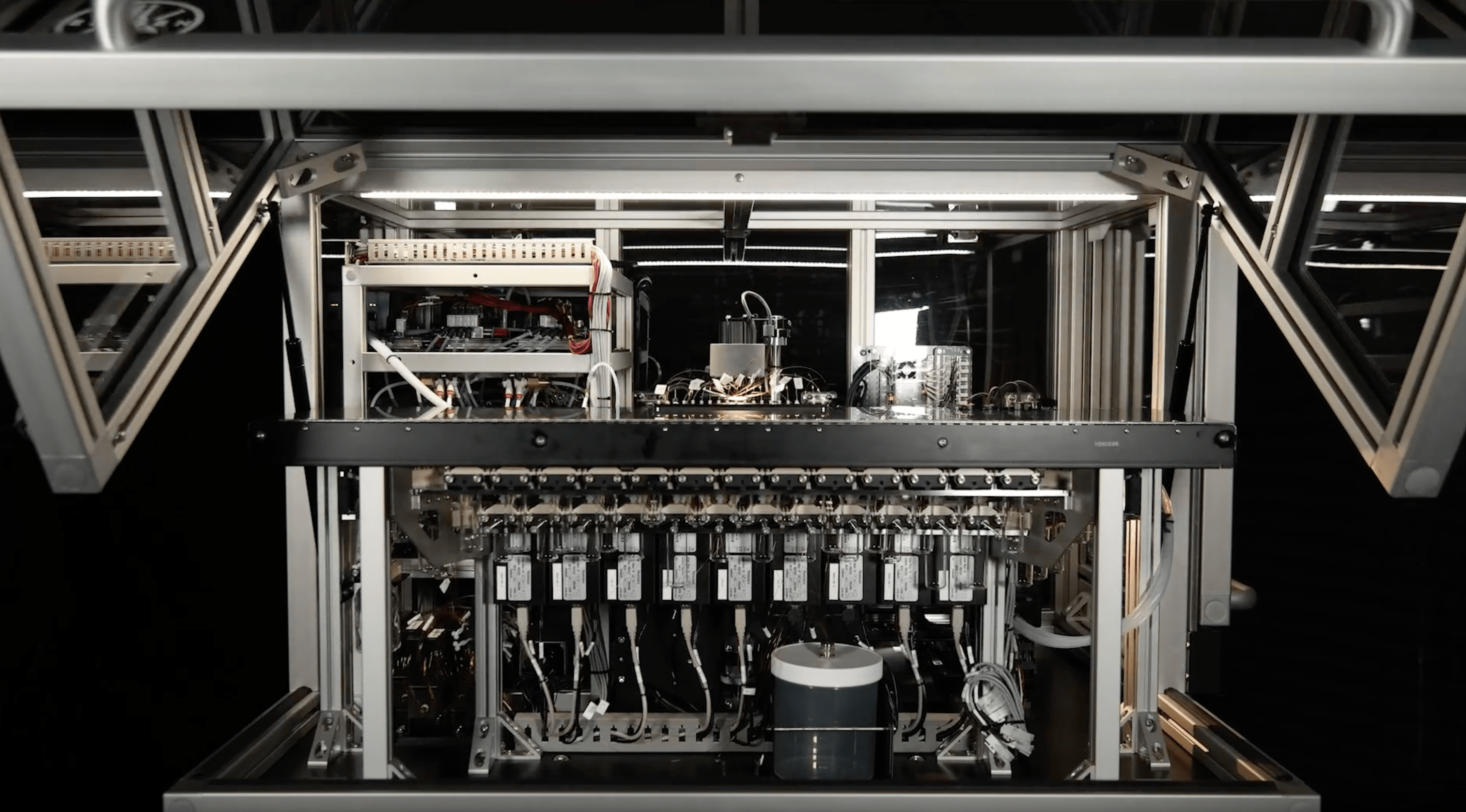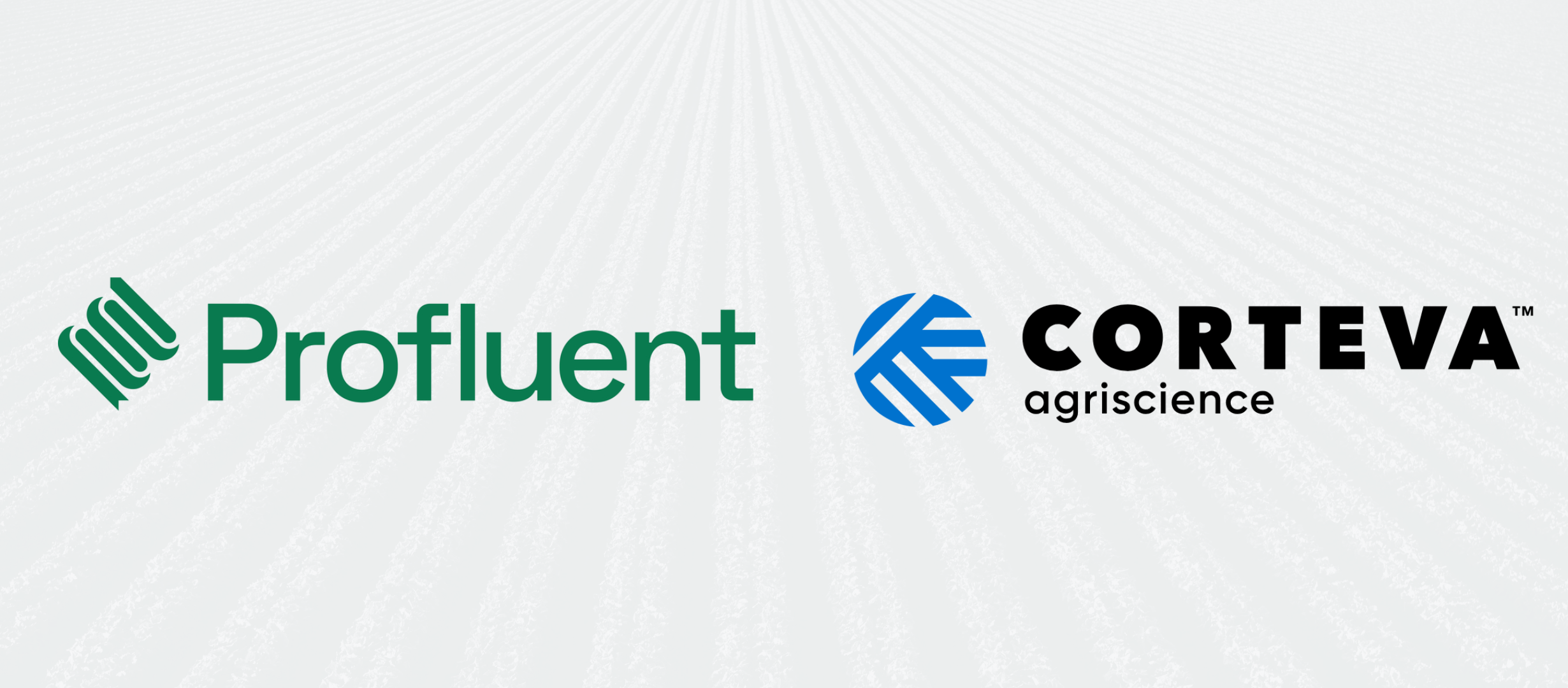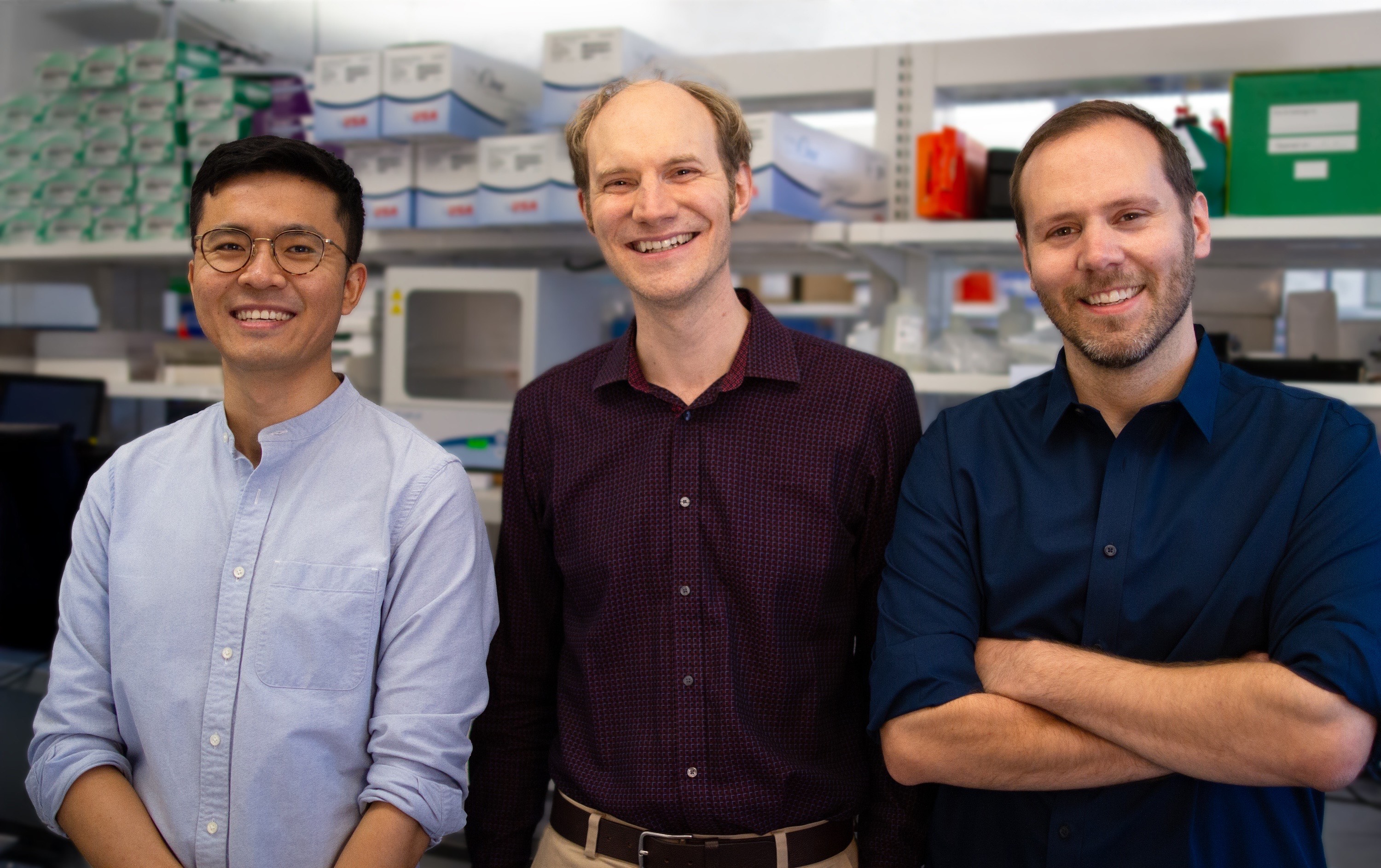
If Biology Can Build It, They Will Come: Ginkgo Bioworks Is Laying The Foundation For The $4 Trillion Bioeconomy
If Biology Can Build It, They Will Come: Ginkgo Bioworks Is Laying The Foundation For The $4 Trillion Bioeconomy
Imagine there was a single method for making just about any product in the world—plastics, food, medicine, data storage devices, even a brain-computer interfaces. Now imagine that this method was faster, cheaper, and more sustainable than conventional manufacturing. Sounds like science fiction, right?It’s not science fiction: it’s synthetic biology, a field that uses biology as a manufacturing platform. Using the latest gene-editing techniques, synthetic biology can program yeast and bacteria into tiny cellular factories capable of making an endless range of products. It’s also the driving force behind the $4 trillion bioeconomy, with great promise for building a more sustainable and abundant world.Compared to sectors like pharmaceuticals and industrial chemicals, synthetic biology is relatively young. About 150 companies on Crunchbase describe themselves using the term “synthetic biology”, although SynBioBeta tracks more than 700 companies in the field. These early adopters either manufacture their own products with synthetic biology or provide synbio tools and technologies to help other companies transform the way they make things.Early innovators in synthetic biology have had to get creative to grow not just their own businesses, but the industry as a whole—and perhaps few companies have contributed more to the industry’s growth than Ginkgo Bioworks.
Laying the groundwork for the future of biomanufacturing
Ginkgo Bioworks is in a class of companies like Genomatica, Arzeda, Conagen, Zymergen, and AmyrisAMRS that provides biotech infrastructure and services—the “back-end” of the synthetic biology industry. Rather than produce final products itself, Ginkgo designs and engineers microbes for a wide range of customer needs, from cannabinoid-producing bacteria to yeast that ferment next-generation food proteins.

Inside of Ginkgo Bioworks.While Ginkgo believes that its microbes could one day produce virtually any physical good, most of Ginkgo’s would-be customers have relied for decades on traditional petrochemical or agricultural means of production. But Ginkgo isn’t waiting for the slow, gradual adoption of synthetic biology by old-world players. Instead, it’s bringing its biology-based approach to the market by creating its own demand.
Building the synthetic biology market
Already, Ginkgo has announced three spin-outs and strategic investments:
- Motif Foodworks, an internal spin-out developing food products
- Joyn Bio, a joint venture with Bayer focused on agricultural products
- Synlogic, where it has made a strategic investment in the pharmaceutical space
In February 2019 Ginkgo launched Motif Foodworks with a $90 million Series A, the largest in food tech history. This spin-out is using microbes to provide next-generation alternative proteins and other ingredients to food companies, showing the holistic view Ginkgo takes in the synthetic biology market. Ginkgo spun out Motif to develop and manufacture animal-free food ingredients, betting that plant-based meats and alternative dairy products would grow into a lucrative market. As part of this spin-out, a “servicing agreement” positioned Ginkgo as the provider of the microbes that Motif would use to manufacture its products.Depending on the project, a subsidiary like Motif might have access to Ginkgo’s platform and technology at no cost. Alternatively, the investment may have dollars specifically earmarked for Ginkgo’s services, resulting in an immediate, new revenue-paying customer. Regardless of the initial financial arrangement, Ginkgo successfully created both a promising investment and a reliable future customer in one ambitious move.Joyn Bio is a joint venture announced in March 2018 and funded to the tune of $100 million by agricultural giant Bayer, Ginkgo, and Viking Global Investors. The Joyn Bio venture carries technological benefits as well, with 100,000 of Bayer’s proprietary microbial strains being shared with Gingko. These strains can now be incorporated into Ginkgo’s internal metagenomics database. Even without explicit IP transfer, Ginkgo gets to flex its technological and commercial muscles in the context of a new industry.In the pharmaceutical industry, Ginkgo has invested $80 million in its partner Synlogic, which will use Ginkgo’s cell programming platform to accelerate Synlogic’s pipeline of living medicines. Both companies believe that the ability to program living cells to sense and respond to treat complex diseases has great potential, possibly transforming the next generation of pharmaceuticals.[caption id="attachment_47860" align="alignright" width="300"]

Aoife Brennan, Synlogic CEO[/caption]“We have been working with Ginkgo for over two years now,” said Aoife Brennan, Synlogic CEO. “We initially started with a pilot project that went so well, we expanded our collaboration.”Brennan says Synlogic has really benefited as a company from working with Ginkgo. “Having access to Ginkgo’s expertise and foundry services has allowed us to initiate more projects and to make sure that we are moving the best synthetic biotics into further development.”Brennan says that Ginkgo is not just a good collaborator, it also shares her company’s values. “Both of our companies share a passion for synthetic biology and making a positive impact on the world.”As Ginkgo seeks to attract customers in new markets, spin-outs and investments like Motif, Joyn Bio, and Synlogic demonstrate to other big players how synthetic biology is going to disrupt industries like food, agriculture, and pharma—and how synthetic biology can be used to transform their own businesses.
Shaping biotech startups into future customers
With this business model successfully piloted, Ginkgo has begun building a pipeline of promising biotech start-ups poised to be users of its microbial design platform. Partnering with start-up incubators Y Combinator and Petri, Ginkgo offers select start-ups access to its services in exchange for equity. The start-ups benefit from access to a technology stack that can save them large amounts of capital and time that would otherwise be sunk into building their own microbial design infrastructure.[caption id="attachment_47861" align="alignright" width="300"]

Y Combinator partner Jared Friedman[/caption]"Ginkgo Bioworks was the first life sciences company YC funded, back in 2014,” Y Combinator partner Jared Friedman told me. “We believed early on that what they were building would help power the next generation of synbio startups, and it's been impressive to see them execute on that mission.”Friedman says that Ginkgo is making it cheaper and easier for new companies to get started by providing them with a platform that makes engineering biology easier.
“What Amazon's AWS did for software companies, Ginkgo is doing for bio companies,” he said.
“We have a shared vision for the future, one in which bio startups are as easy to start as software startups, where founders don't have to spend years and millions of dollars booting up a genetic engineering lab,” said Friedman. “We're proud to be part of Ginkgo's continuing work to make this the standard."Further enhancing this early pipeline of start-ups which rely on Ginkgo’s platform, the company recently announced the creation of a $350 million Ferment Fund. The Ferment Fund will spin out additional companies into promising markets identified by the Ginkgo team. Not only do these investments provide Ginkgo with a stake in promising biotech firms, but they also enable Ginkgo to support the growth of a synbio ecosystem reliant on its platform.
Responding to the pandemic
In a demonstration of the flexibility of the company’s technology platform, as well as its commitment to help in the fight against the coronavirus, Ginkgo recently took several actions to help scale the research community’s response to the pandemic.Ginkgo announced Concentric, a program to offer COVID-19 testing at scale to support schools and businesses in their reopening strategies. Concentric can provide end-to-end, on-site testing services for organizations that seek to make testing available to their communities.“Testing is essential for understanding and stopping the spread of the virus,” Ginkgo said in an op/ed. By repurposing its next-generation sequencing capacity to rapidly scale testing, Ginkgo hopes to turn the tide.In March, Ginkgo pledged $25 million of its research and development resources to help researchers battling the coronavirus. Ginkgo has used its DNA synthesis capabilities to make the virus’s sequences freely available for use in R&D for diagnostics, therapeutics and vaccines. Ginkgo also is a part of a Berkeley Lights consortium for antibody discovery and testing, helping to scale up infrastructure for antibody lead optimization.
A virtuous synthetic biology cycle
As synthetic biology start-ups grow, they will continue to lean on Ginkgo’s platform for microbial design, since developing in-house capabilities will appear increasingly redundant with each successful Ginkgo collaboration. In this way, Ginkgo will have created a robust ecosystem of companies modeled after its own Motif Foodworks, full of start-ups that excel at developing and biomanufacturing final products while they outsource their microbial design to the Ginkgo Bioworks mothership.Follow me on Twitter at @johncumbers and @synbiobeta. Subscribe to my weekly newsletters in synthetic biology. Thank you to Matthew Kirshner for additional research and reporting in this article. I’m the founder of SynBioBeta, and some of the companies that I write about—including Ginkgo Bioworks—are sponsors of the SynBioBeta conference and weekly digest. Here’s the full list of SynBioBeta sponsors.
Originally published on Forbes: https://www.forbes.com/sites/johncumbers/2020/06/25/if-biology-can-build-it-they-will-come-ginkgo-bioworks-is-laying-the-foundation-for-the-4-trillion-bioeconomy/



.svg)





.png)



.jpg)

.gif)